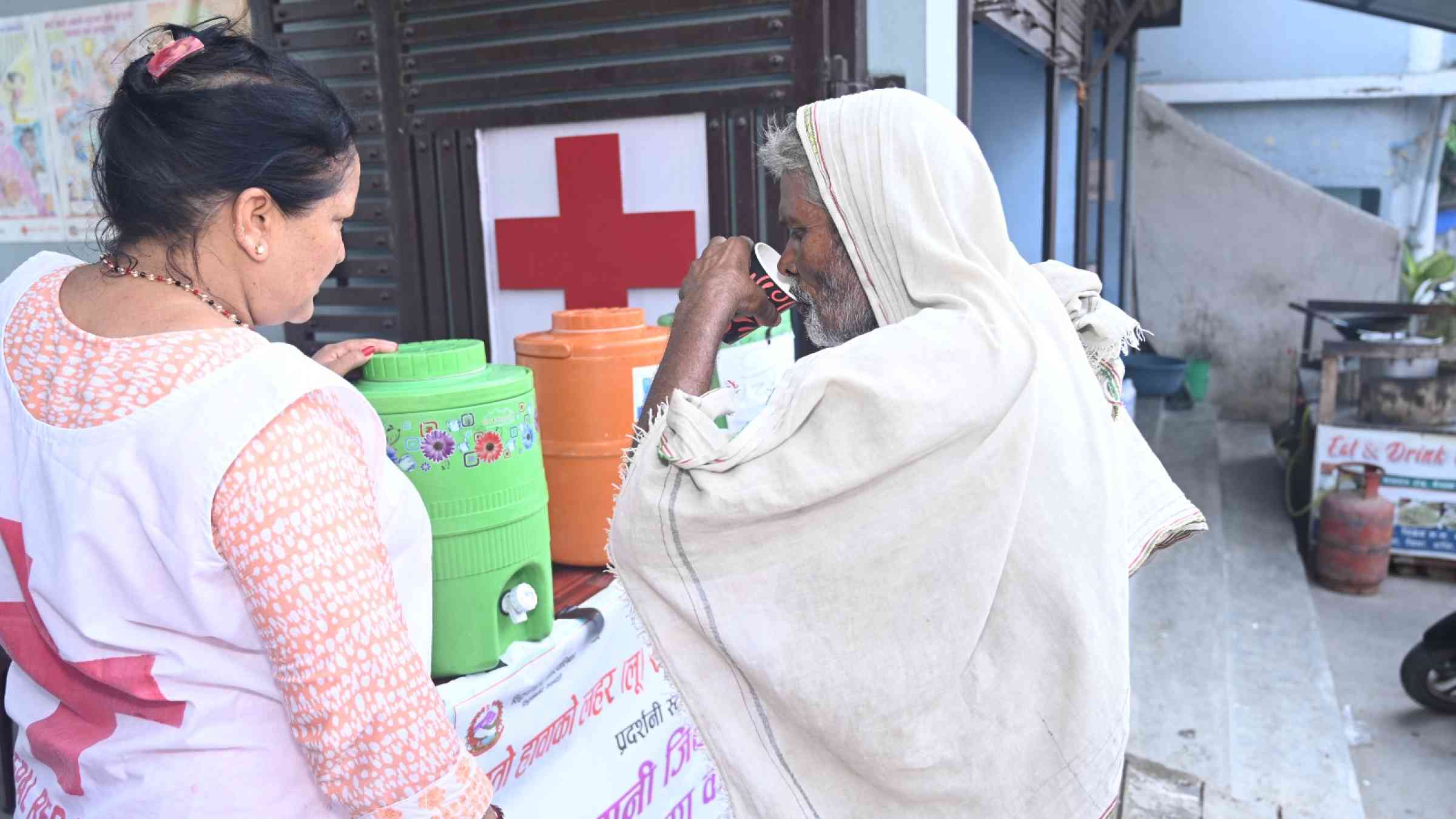Loss of Life from Heatwaves is Avertable: A Multi-dimensional Strategy to Addressing Heatwaves
Heatwaves, once described as a "silent killer," are becoming one of the most pressing issues to address given their increasing severity, frequency, and longevity. High temperatures and heatwaves in April 2024 across Asia reached more than 40°C and were made hotter and more likely by human-induced climate change, according to an analysis by an international team of leading climate scientists from the World Weather Attribution (WWA) group. In South and Southeast Asia, Myanmar, Laos, Bangladesh, and Vietnam broke temperature records for their hottest April day, and the Philippines experienced its hottest night ever. In Bangladesh, the heatwave broke a 76-year record. In India, temperatures reached as high as 46°C. The heat was also extreme in West Asia, with Palestine and Israel experiencing temperatures above 40°C. April 2024 was also the hottest April on record globally.
Currently, the planet has warmed nearly 1.2°C on average compared to the pre-industrial era, though it has breached higher temperature marks on several occasions. Scientists have said that if global warming reaches 2°C, as expected in the 2040s or 2050s unless emissions are rapidly halted, similar heatwaves will occur about once every five years. Deaths attributed to heatwaves or high temperatures are increasing. For example, until April 2024, Thailand recorded 61 deaths linked to heat compared to 37 in the entire 2023.
Key health effects include heat-related illnesses (heat strokes), exacerbation of chronic conditions (cardiovascular diseases, respiratory conditions), dehydration, respiratory issues (pollution), and mental health impacts (anxiety, depression). Humanitarian interventions aim to strengthen resilience, raise awareness, and implement preventive measures to mitigate the escalating risks associated with heatwaves, ultimately safeguarding the well-being of affected populations, particularly the most vulnerable, such as the elderly, infants and young children, people with chronic medical conditions, lower-income populations, or outdoor workers.
The partner event will reinforce this growing risk across the Asia-Pacific Region and how countries have been able to acknowledge it and take proactive steps and countermeasures. The session will argue that addressing heatwaves requires more of a multi-pronged strategy, bringing together policymakers, public health service providers, urban planners, donors, and civil society to work in cohesion.
The session will showcase how governance for heat risks and related issues has been on the uptake through the development of heat action plans at the city level, as well as the recognition of heatwaves as a disaster within national or sub-national disaster law, which creates that enabling environment for coherent and timely action. It will also advocate the need for accessible financing, which is a key instrument for reducing heat risks.
Like-minded partners have come together to organize this event that will focus on raising awareness about the impact of heatwaves on health, as well as brainstorming strategies to reduce the health impacts of extreme heat in a climate-affected world.
Objectives:
• Discuss advancements in heatwave forecasting and early warning systems, focusing on anticipatory actions to enhance preparedness.
• Share successful strategies for preparedness and response, including the development and implementation of local and city-specific heatwave action plans.
• Enhance collaboration with national and local governments, donors, and humanitarian and health organizations to scale up effective practices, address knowledge gaps, and strengthen capacity-building programs.
• Increase awareness among policymakers, stakeholders, and the public about the significant links between climate change, heatwaves, and health, and create a platform for advocacy to strengthen policies, regulations, and actions addressing these issues.
Outcomes:
• Promote regional, national, and local initiatives contributing towards the resilience of communities (urban and rural) and cities on heatwaves.
• Advocate for the relevant institutional arrangements, especially public health service providers, to work closely with DM systems for greater synergy of actions.
• Facilitate collaboration among relevant stakeholders to address heatwaves through a whole-of-society approach.
Moderator: Ms. Audrey Tan, Assistant News Editor, SPH Media Trust (TBC)
Panel:
- Mr. Anil Pokhrel, Chief Executive, National Disaster Risk Reduction & Management Authority (NDRRMA), Nepal
- Ms. Sezin Tokar, Lead senior hydrometeorological hazard advisor and Disaster Risk Reduction, USAID's Bureau for Assistance (BHA)
- Mr. Sagar Shrestha, Director, Community Development and Resilience, Nepal Red Cross Society
- Md. Shahjahan Saju, Assistant Director & Project Coordinator, FBF Project, Bangladesh Red Crescent Society
- Dr. Sally Edwards, Coordinator, Health and Environment WHO-Western Pacific Region (WPRO)
Learn more
For more information, please visit www.ifrc.org and www.redcross.org

Agenda
Location
Philippine International Convention Center
Online access
Details
Organized by
International Federation of the Red Cross and Red Crescent Societies (IFRC) and American Red Cross (AmRC)Contact
Luis Rodriguez, Climate and Resilience Lead, IFRC, email: [email protected]
